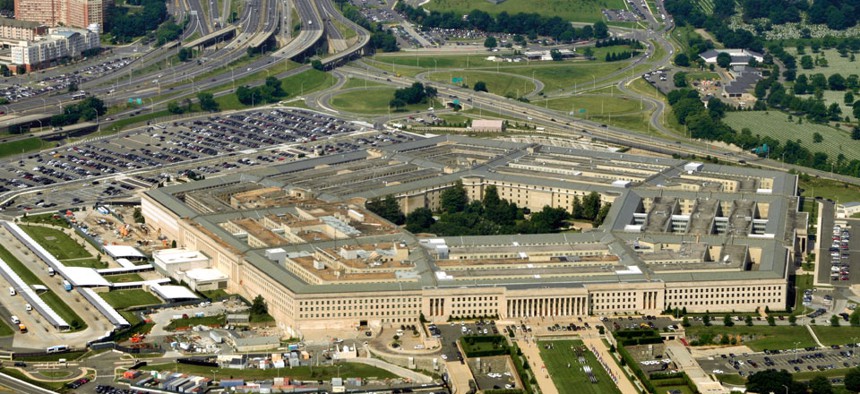Pentagon Tries Again on Cyber Intelligence-Sharing Contract

Frontpage/Shutterstock.com
Agency will recompete the $26 million job after a GAO ruling against the initial award.
The Defense Department will recompete a $26 million contract to support a classified cyber intelligence network, after federal attorneys determined the Pentagon failed to properly evaluate contractor proposals, Defense officials said late on Friday.
The project in question involves a network that holds "signatures" of known cyber threats identified by the National Security Agency. The system, part of a Defense Information Systems Agency program, feeds these classified and sometimes unclassified indicators of potential hacks to cleared defense companies so they can apply appropriate computer protections.
Last fall, DISA awarded a five-year contract to the lowest-price bidder - DSA -- because none of the four information technology vendors competing offered a better value to warrant a higher pricetag, according to a Jan. 27 Government Accountability Office decision released on Friday. One of the firms, Solers, had argued that DSA's low-price did not reflect the actual labor required to do the work and contested the contract. GAO sided with Solers.
A DISA spokeswoman on Friday said the agency will amend its original solicitation and recompete the contract.
GAO attorneys had recommended DISA reevaluate proposals and obtain new submissions if necessary, or issue a clearer request for proposals and let vendors submit new proposals.
“The agency is following GAO's recommended course of action, as such, we have amended the RFP and will be conducting evaluations of the proposals,” the DISA spokeswoman said.
The Defense Industrial Base Network, or DIBNet, job includes developing custom code and analysis of the system's security; development testing; installation; and performance evaluations, among other things.
An "agency must perform a cost realism analysis to determine the extent to which an offeror’s proposed costs are realistic for the work to be performed," GAO General Counsel Susan A. Poling said. "We conclude that the record does not demonstrate how the agency found that DSA’s proposed price/cost was realistic for the work to be performed."
In addition, Solers argued its $36 million proposal had in fact exceeded the job requirements in numerous areas.
Poling said DISA technical evaluators agreed that the proposal was "advantageous" and exceeded the work requirements, but during litigation proceedings, the agency explained that "these areas did not merit a strength because there was no quantifiable benefit."
Where "an agency offers an explanation of its evaluation during the heat of litigation," GAO does not give much weight to that rationale, she said.
Booz Allen Hamilton, the original contractor for the DIBNet, was awarded a $4 million, six-month gap contract in January, while this dispute was going on, according to federal spending databases.
DSA officials said they had no comment at this time. Solers officials were not immediately able to comment.
Get the Nextgov iPhone app to keep up with government technology news.
(Image via Frontpage/Shutterstock.com)






